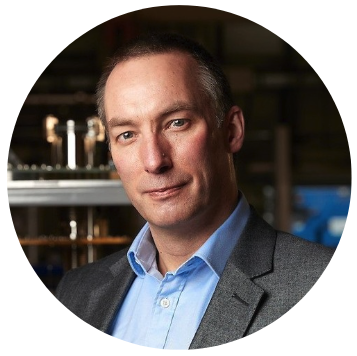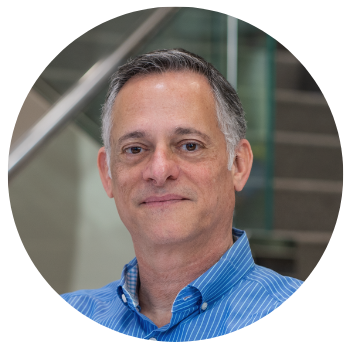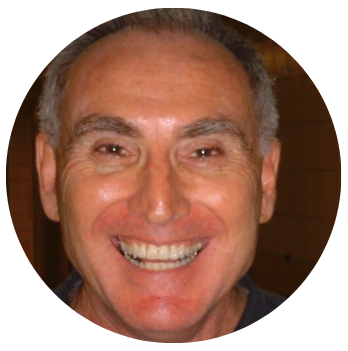Applications
 Part of the Oxford Instruments Group
Part of the Oxford Instruments Group
Expand
Collapse
Training is an essential part of building the quantum workforce and its related disciplines. It poses a number of challenges for employers and for universities: rapid technological advancement exacerbates skill gaps, practical experience is often expensive and inaccessible and only available for post-graduates, and university courses rightly need to prioritise theory over commercial skills.
So how do we overcome this? The resounding verdict is through collaboration. But what does this look like in practice? What initiatives or training do we need to properly prepare students and school leavers? What skills or areas of expertise are a priority?
We sat down with our friends at Lake Shore Cryotronics, Quantum Design and San Diego State University to answer these questions.
Matt Martin, Managing Director at Oxford Instruments NanoScience
In conversation with:
Chuck Cimino, Senior Product Manager at Lake Shore Cryotronics
Barak Green, Director of Marketing at Quantum Design International
Milton Torikachvili, Professor of Physics at San Diego State University
Chuck Cimino
What I've seen in my career and the last five years with Lake Shore and other testing companies is that our most successful employees have a good balance of theoretical training and hands-on experience. Experience either doing experimentation, or in the case of engineers, building electronics.
My view is that today more than ever, there seems to be less practical training available to students and young people and fewer opportunities for gaining practical knowledge. That’s why I’m excited to collaborate with other companies like Quantum Design to make more advanced equipment available to students sooner in their careers.
Barak Green
I agree. In measurement, in electronics, those people who can marry theoretical knowledge with hands-on experience are in high demand. What we are trying to do with our education initiatives at Quantum Design is to give students access to instruments that they may encounter in the real world. Really allow students to experience theory by doing experiments. Using instruments teaches them to build processes for finding answers. How to build an experiment, take data and then interpret that data in order to arrive at answers.
Any company you go to is going to have their own way of doing things, but if we can support students to graduate with as well-rounded a skill base as possible, that’s the best outcome for industry.
With physics and engineering degrees it can be that this type of training and access to instruments only happens in grad school, at masters or PhD level. We're trying to bring it in earlier. Get them excited about tech careers earlier. Get them into this sort of problem solving mindset earlier.
Matt Martin
I think it’s crucial to get people excited about tech earlier. Specifically for quantum, when quantum computing accelerates, when more companies are building large systems and putting them in data centres - not just the few that we’ve been involved with so far with our partners, but the many - then all of a sudden the industry will need a lot of people that understand how to service those systems. It will be the service engineers, the maintenance technicians whose skills will be in high demand. And that’s not a post-doc role.
Chuck Cimino
This is a particular problem now as we need to get better at understanding ever richer data sets. Sometimes early in a career - I know this was true in my case - challenges arise when separating data from information. Say when setting up an experiment and collecting measurements, you'll either put too much faith in those measurements or you don't know how to interpret what you're seeing.
I think this experiential learning, the hands-on aspect, is essential to help you trust your intuition and recognise when the data doesn’t look right and check your setup accordingly. The lab is where that real world messiness can come in and I think the sooner you get into the real world, the closer you will get to useful information. The best innovations often happen from an experiment gone awry. In those scenarios, you need to be equipped to know whether it’s bad data, or whether its unexpected outcomes you should explore further.
Barak Green
Yes and I would say this is part of why it’s important for instrument makers and universities to collaborate. We can think of ways for students to interact with the instruments so that they are essentially receiving training and learning what they need to learn to handle such rich data sets.
Milton Torikachvili
Building on that, I can say truthfully that academic institutions are in a bit of a bind. On the one hand there’s the need for students to acquire a solid foundation in maths, physics, chemistry, and materials sciences in order to develop the working knowledge of quantum mechanics and quantum technologies. On the other hand, students also need to develop other practical skills in things like the data acquisition, programming, and sample preparation necessary when handling experimental data. Given that only about 5% of students end up in academic careers, it is imperative that colleges and universities do what they can to equip students with these hands-on skills. We need to make sure we are giving folks the right skills to allow them to go out into the real world and join the quantum workforce as well as other science enterprises and be successful wherever they land.
With this in mind, interpreting data that has been automatically collected is a crucial skill that we teach. When my students come in with data that doesn't seem right, we do a sanity check to help with exactly this problem of believing in data too much. I'm glad that we have all these automated machines so we can spend more time studying physics but it's part of our job and the instrument manufacturer’s job to alert the users to the need for checks.
Matt Martin
From the materials measurement part of our business I totally agree. We see a knowledge gap between what people used to know at the end of a three-year PhD. Now they know the science, the physics, but they don't always necessarily know the hardware and how to do the hardware that was set up on. This is the part of the training gap that we are very focused on. We're delivering the iPhone equivalent of measurement where people know how to use it, but they don't necessarily understand what's inside the box and we need to be alive to the dangers of that.
Chuck Cimino
For sure. As we provide sophisticated equipment to more earlier career folks, I think it's incumbent upon us not to just install it and walk away, but to understand the curriculum around it. What’s front and centre for the Discovery Teaching Labs [a Quantum Design led initiative] is not just how to use an instrument, how cool it is that it generates all this data, but how to use it well and how to really understand what you're looking at. This is how to get the benefit of the automation and the simplified user interfaces or reduced set up time. There are levels of training: first is basic competency at setting up and running an experiment, second is interpreting the first results and third is how you refine your strategies according to these results.
Matt Martin
It seems to me there are two types of people and two types of learning here. There are the equipment specialists and engineers, the people who maintain, develop, understand and diagnose the instruments, and there are the experimentalists, or the scientists, the users of the equipment. I think it’s great what Quantum Design has done in establishing training for scientific users, and we hope to offer our support and equipment too, as well as creating more of our own Apps Labs, available for training and workshops. But on top of that, where are the blue collar training centres for the equipment engineers? We offer apprenticeships in the UK and that’s a great system, but we need to work with organisations who are putting together effective training outside of a university environment too and doing that at scale.
Barak Green
I think having these kinds of conversations with the professors using the instruments is where we should start. Allowing them to feed back to us where they need more information to create the curriculum for their students. To help further, we could put benchmarks in place so professors know where students might be likely to get lost in the weeds of the equipment, and then put in training around these topics.
As the equipment becomes more and more advanced, we want to make sure students are confident to firstly use the equipment and secondly question and interpret its outputs.
Milton Torikachvili
In my view, I don’t think there’s a definite answer for how academia and industry can best collaborate. Colleges and universities need to provide a broad education, from the most hands-on to the most abstract. Universities cannot just be job training facilities. The idea is to equip students with a solid broad knowledge, as well as some hands-on experience, both of which will be put to work when they join industry.
But there are a couple of things we haven’t mentioned yet. One is company outreach programmes and the impact that has on a student. I’m lucky enough to live ten miles away from Quantum Design and when we’ve taken students to their facilities or folks from Quantum Design have given talks here, the motivating effect it has on students is tremendous. Within a week, students are updating their resumes and wanting to interview at these companies. So I think it's very important that this type of collaboration exists.
The other is job fairs - especially when the exhibiting companies bring a technical person with them. Because they can relate on a more personal level to what the students are experiencing, they can answer the questions the students want to know: how they got there, what they learned in the process, what advice they would give to a student to get to the same place.
Chuck Cimino
That’s really interesting. Maybe what we need is more insights into life at these companies. Physical visits are always the best, but virtual content could work too. Content aimed at undergraduates who are figuring out what they want to do next. Interviewing a software engineer for example and asking them how they got to where they are now.
Milton Torikachvili
I also think this ties in with the issue of inclusion. Seeing this kind of content, seeing that there is no one way to be an engineer or a measurement scientist, would be so impactful for those groups who are currently underrepresented.
Milton Torikachvili
From the academic point of view, we can’t just push the incoming students into quantum learning. Students by and large need a solid foundation in physics, maths and other related fields before quantum starts to make sense. When it does, visits, job fairs, internships, and presentations from industry are probably the best conduits to a pipeline.
Barak Green
I think making sure the ecosystem is aligned is important. For example, we recently held the inauguration of our new Teaching and Discovery Lab at California State University, San Marcos. Lake Shore was also there as one of our key sponsors. The new lab is an instructional and research facility whose primary aim is to train undergraduates. Students have now been able to take a lab course and get to use instruments they wouldn’t usually get an opportunity to use. The students loved it, and we could see the effect this had and that made us want to grow our initiatives to reach the wider community.
But you can’t do that kind of thing alone. You need industry and academic partners to create something that touches all corners of the ecosystem. It’s a two fold venture. On the one hand, it’s practical training, on the other, it’s also about inspiration. Because if we as a community can’t get students to be excited about entering into physics or engineering professions, it doesn’t matter whether they have the skills or not.
Chuck Cimino
I agree, and I would say from an industry perspective we need to do more cheerleading. At the moment we are primarily focused on technical training and applications. I think we could do more of what Milton talks about - visiting these schools and talking to students, even maybe before undergraduate level, engaging with them then, showing the possibilities and opportunities on offer and answering their questions.
Matt Martin
I completely agree and I want to say how much I value having these discussions with you. We are competitors, but we can be collaborators in training. We need to let as many people as possible know that materials measurement and quantum can give you a lifelong career. In quantum especially, it’s going to grow and explode as an industry and preparation for that is key. We can only prepare sufficiently together: manufacturers, universities, governments all in alignment.

Matt Martin
Managing Director at Oxford Instruments NanoScience

Chuck Cimino
Senior Product Manager at Lake Shore Cryotronics

Barak Green
Director of Marketing at Quantum Design International

Milton Torikachvili
Professor of Physics at San Diego State University